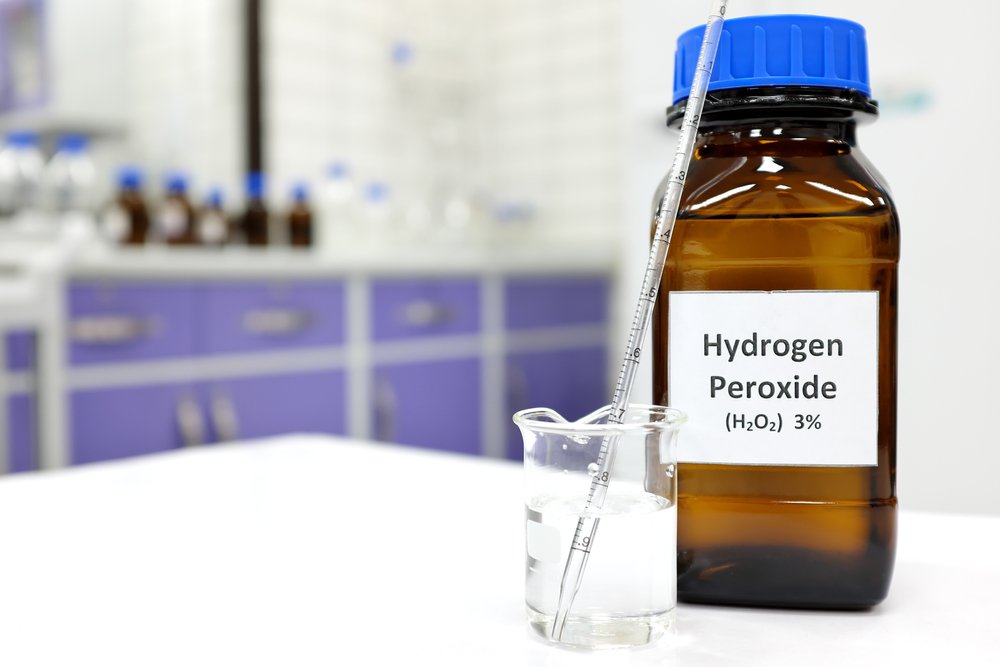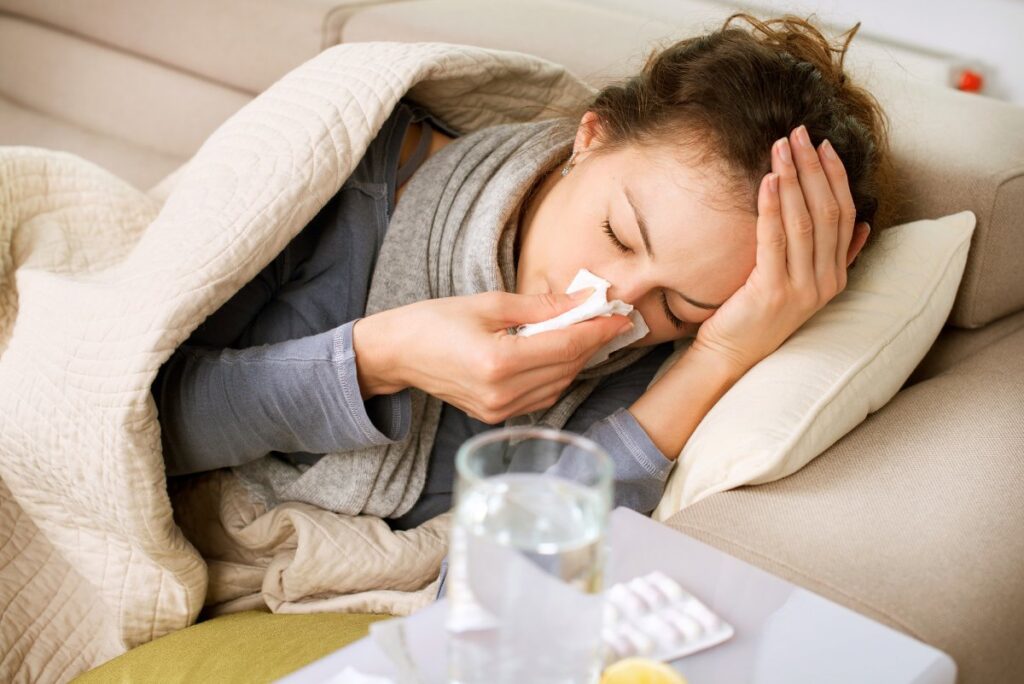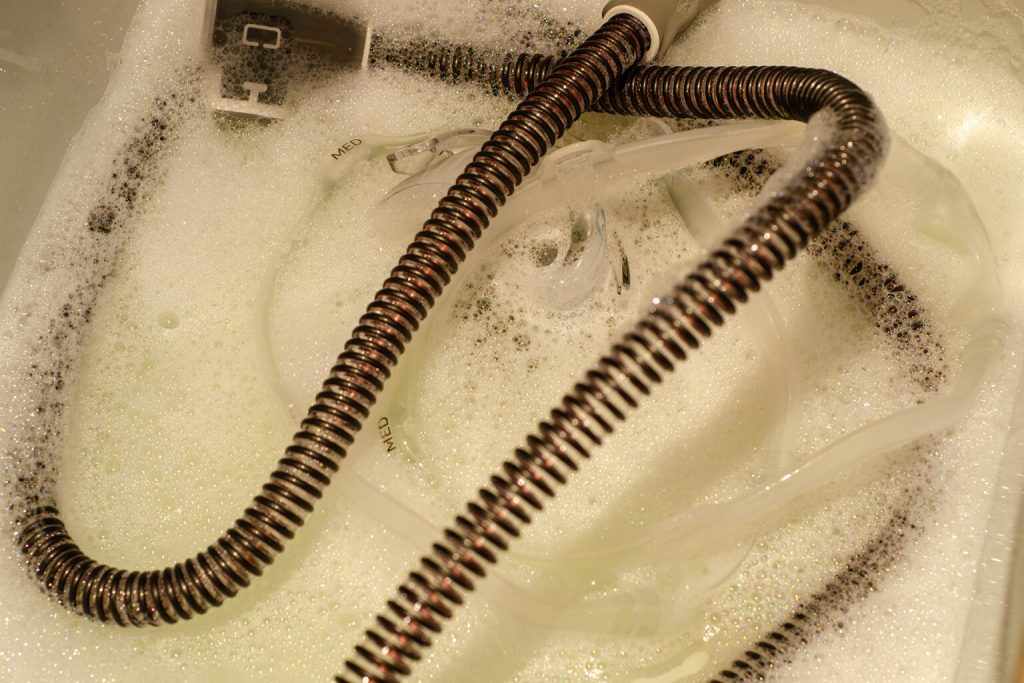Last Updated on August 24, 2021
These days more and more people are getting informed about the nature and symptoms of sleep apnea. Many are learning about how doctors treat this disease. Unfortunately, despite such advances, we still have some strange myths revolving around the nature and causes of sleep apnea.
Most likely, you might even find it challenging to gather sound advice about the subject. Yes, there is much-contradicting information- particularly about the best ways to clean the CPAP machine.
Here are some valuable facts on the subject:
Ending the Debate on the Merits and Demerits of Hydrogen Peroxide
As mentioned, one of the most-loved ideas for discussion among many CPAP users is this: Is it wise to clean your CPAP machine with hydrogen peroxide? Is it a bad idea? Well, ask different people, and you’ll get different answers.
But here’s the catch- simply follow your doctor’s advice. Ask your trusted CPAP expert to offer some advice. This is the wisest thing to do. You’ll quickly establish this – it’s not the best idea to clean your CPAP equipment using hydrogen peroxide.
It’s certainly helpful to talk a little about this controversial chemical. Only then will we better equipped to discuss the merits and demerits of using hydrogen peroxide to clean the CPAP equipment.
What Exactly is Hydrogen Peroxide?
It’s a great idea to try to understand precisely what hydrogen peroxide is. A long time back- before people started debates discussing the wisdom of using hydrogen peroxide to clean the CPAP, hydrogen peroxide had already become a household name. How? It was commonly found in many places, including homes, hospitals, and hospital laboratories.
Essentially, hydrogen peroxide is a colorless liquid that comes with a faintly sharp odor. From the onset, due to its unique properties, many widely used the chemical as a disinfectant.
Scientifically speaking, hydrogen peroxide is a molecule composed of two hydrogen and two oxygen atoms. The oxygen atoms have a single bond (known as the peroxide bond). This is what gives the chemical its dominant and unstable properties. Since it has a powerful oxidizing capacity, hydrogen peroxide has always been a popular cleansing and bleaching agent.
Interestingly, hydrogen peroxide (in its pure form) is usually a bit more viscous than water. Generally, whether in one form or another, this widely-used chemical has long been utilized in accomplishing many different tasks, including simple household cleaning and propulsion in the rocket science industry.
The Dangers and Perils of Hydrogen Peroxide
The US Food and Drug Administration (FDA) classifies hydrogen peroxide as “generally safe” for humans when administered in low doses. However, the FDA offers this categorization laced with a potent warning that hydrogen peroxide can cause irritation, skin blistering, and burning sensations.
So, beware! While most internet chat rooms and clickbait sources might aggressively try to convince you that hydrogen peroxide can be put to many versatile uses, you still need to be careful. Admittedly, such sources might be right regarding hydrogen peroxide’s cleaning and bleaching capabilities. Regardless, you must still take care to avoid breathing in the chemical (even if in low doses); this can be terribly hazardous.
In fact, the use of this chemical comes with many other risks to human health. Thus, every time you’re doing some cleaning while using hydrogen peroxide, make sure you keep the chemical far away from your eyes. This is because this chemical can cause the cornea’s burning and abrasion if you accidentally splash it into the eyes.
Generally, inhaling hydrogen peroxide can lead to irritation and burning of one’s breathing passageways. Moreover, it can lead to a feeling of tightness in the chest as well as shortness of breath. That’s not all; anyone who takes in large quantities of hydrogen peroxide will suffer from feelings of inflammation, persistent vomiting, and ultimately organ damage.
Interestingly, many people have used hydrogen peroxide as the preferred antiseptic for treating wounds and injuries over the years. Despite this, most medical experts have recently noted that this chemical can cause long-term harm to humans. First, hydrogen peroxide can destroy the healthy cells around a wound. In time this would cause irritation, redresses, and slow healing. When used in higher concentrations, this chemical can lead to severe damage and scarring of the skin. It’s, therefore, not wise to try using it for lightening the hair or skin or treating related conditions like acne.
Causes More Harm than Good
Others have historically used food-grade hydrogen peroxide as the preferred treatment for various conditions, including lupus, cancer, and diabetes. Well, it’s not really wise to do so. If you suffer from such conditions, there are very high chances that your condition will worsen when you use this chemical. In fact, you might suffer more harm and gain little good.
Think of this: A study was conducted between 2001-2011 involving the analysis of 294 people who ingested hydrogen peroxide and suffered from food poisoning. In the course of this study, the researchers recorded some severe side effects among the patients. These included such conditions as seizure, respiratory distress, altered mental status, stroke, and pulmonary embolism.
Please note that it’s undoubtedly dangerous to try to use Hydrogen Peroxide in the business of cleaning your CPAP. In fact, those who insist on doing so despite the risks involved will soon discover this: Before long, they’ll have to replace their CPAP mask. Why? Whether they were aware of it- or not- hydrogen peroxide is known as an agent that gradually destroys the CPAP mask materials. Yes, using hydrogen peroxide to clean your CPAP ultimately means that you’ll need to spend more money over time.
Final Verdict
Overall, having discussed the pros and cons of cleaning the CPAP with hydrogen peroxide, it’s clear that it’s not a great idea to clean your CPAP with this chemical. Of course, as noted, you’ll find hundreds of sources within the internet vouching for the idea that using the chemical in this way is actually harmless. Some even say that using hydrogen peroxide can boost the CPAP user’s health.
Be cautious- think before you leap.
There’s little doubt that- as a chemical- hydrogen peroxide is an excellent household cleaning agent. This does not mean that the chemical is safe for personal use or that you can safely use it in high concentration in direct contact.
So, what’s our verdict? Well, we don’t recommend cleaning the CPAP with hydrogen peroxide. Since the chemical is corrosive, it can damage your CPAP device. Ultimately, hydrogen peroxide fumes can harm your lungs, damage your respiratory system and even cause death. Why not use excellent CPAP cleaners like VirtuCLEAN 2.0 or Sleep8? Otherwise, you can manually clean the CPAP machine right there at home and avoid taking needless risks.



